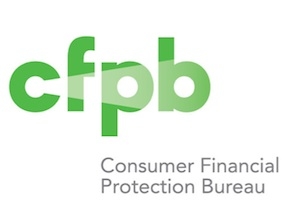Advertisement
CFPB Fines Chase $309 Million-Plus for Deceptive Credit Monitoring Practices

The Consumer Financial Protection Bureau (CFPB) has ordered Chase Bank USA NA and JPMorgan Chase Bank NA to refund an estimated $309 million to more than 2.1 million customers for illegal credit card practices. This enforcement action is the result of work started by the Office of the Comptroller of the Currency (OCC), which the CFPB joined last year. The agencies found that Chase engaged in unfair billing practices for certain credit card “add-on products” by charging consumers for credit monitoring services that they did not receive.
“At the core of our mission is a duty to identify and root out unfair, deceptive, and abusive practices in financial markets that harm consumers,” said CFPB Director Richard Cordray. “This order takes action against such practices and requires Chase to fully refund more than $300 million to consumers who were charged illegal fees.”
According to the CFPB order, Chase enrolled consumers in credit card “add-on” products that promised to monitor customer credit and alert consumers to potentially fraudulent activity. In order for consumers to obtain credit monitoring services, consumers generally must provide written authorization. Chase, however, charged many consumers for these products without or before having the written authorization necessary to perform the monitoring services. Chase charged customers as soon as they enrolled in these products even if they were not actually receiving the services yet.
The agencies found that Chase engaged in these practices between October 2005, when Chase first offered the products, and June 2012, when Chase stopped billing consumers who were not receiving the promised benefits.
As a result of the unfair billing tactics, consumers:
►Were charged for services they did not receive: Consumers were charged fees as soon as they enrolled in these add-on products, which include “identity theft protection” and “fraud monitoring.” Monthly fees ranged from $7.99 to $11.99 even though the promised services were not performed. In some cases, consumers paid for these services for several years without receiving all of the promised benefits.
►Unfairly incurred charges for interest and fees: The unfair monthly fees that customers were charged sometimes resulted in customers exceeding their credit card account limits, which lead to additional fees for the customers. Some consumers also paid interest charges on the fees for services that were never received.
►Failed to receive product benefits: Consumers were under the impression that their credit was being monitored for fraud and identity theft, when, in fact, these services were either not being performed at all, or were only partially performed.
Pursuant to the Dodd-Frank Act, the CFPB has the authority to take action against institutions engaging in unfair, deceptive, or abusive practices. Chase has taken steps to correct these unfair practices by ending the marketing of these services in April 2011 and issuing consumer refunds in October 2012.
To ensure that Chase honors its obligation to repay all affected consumers and that consumers are no longer subject to these unfair billing practices, the CFPB’s order requires that Chase Bank USA, N.A. and JPMorgan Chase Bank, N.A.:
►End unfair billing practices: Consumers will no longer be billed for these products if they are not receiving the promised benefits. Chase also must take steps, subject to the Bureau’s approval, to ensure these unlawful acts do not occur in the future.
►Complete repayment, plus interest, to more than two million consumers: Chase must pay a full refund, approximately $309 million, to more than two million consumers who enrolled in the credit monitoring product and were charged for services that were not received. In addition to the amount paid for the product, Chase must refund interest and any over-the-limit fees resulting from the charge for the product.
►Conveniently repay consumers: If the consumers are still Chase customers, they received a credit to their accounts. If they are no longer a Chase credit card holder, they received checks in the mail. Consumers were not required to take any action to receive their credit or check. Most consumers should have received refunds by November 30, 2012.
►Submit to an independent audit: Chase has engaged an independent auditor to help ensure the refunds have been provided in compliance with the terms as set forth in the CFPB’s order.
►Improve oversight of third-party vendors: The CFPB is also requiring that Chase strengthen its management of third-party vendors who manage these identity protection products.
►Pay a $20 million penalty: Chase will make a $20 million penalty payment to the CFPB’s Civil Penalty Fund.
This action is the third that the Bureau has taken in coordination with a fellow regulator to address illegal practices with respect to credit card add-on products. This action is being taken in coordination with a separate action of the OCC, which initiated the inquiry in 2011. The OCC is separately ordering restitution of approximately $309 million from Chase Bank USA NA and JPMorgan Chase Bank NA. The OCC’s order also includes a separate order for Chase to pay $60 million in civil money penalties in addition to those ordered by the CFPB.
“I’d like to express my gratitude to the Comptroller of the Currency, Tom Curry, for his leadership on this issue. The CFPB was created, in part, to make sure that we never have to relive the recent financial crisis," said Cordray. "At the core of our mission is a duty to identify and root out unfair, deceptive, and abusive practices in financial markets that harm consumers. We have various tools to achieve that goal, including supervisory oversight and enforcement actions."
About the author





